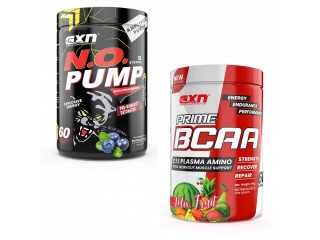HOW SPORTSWEAR TOOK OVER YOUR WARDROBE Private
3 years ago - Fashion, Home & Garden - Barddhamān - 217 viewsLet’s kick off with a question: what is the most valuable clothing brand in the world? That would be sportswear giant Nike , which topped the 2018 league table with a total worth of $28bn, despite a 12 per cent drop due to “challenges” in North America and some executive misconduct. Buoyed by rampant sneaker culture and shifting dress codes, this should be a surprise to no-one, because there has been a fundamental shift in men’s fashion. Comfort got cool. The tastemakers went technical. Tracksuits became high fashion. At what point do we stop compartmentalising it as “sportswear” and just call it fashion, or clothes? Fashion’s brand rankings are a clear indication, if you needed one, that sportswear is no longer restricted to the playing of sport. Trailing behind the mighty swoosh, according to marketing consultants Brand Finance, are high street behemoths H&M and Zara, which finished second and third on $19bn and $17bn respectively, followed by a resurgent Adidas, up 41 per cent year on year to $14bn (one of Nike ’s principle “challenges” in North America). That’s way ahead of the luxurious likes of Hermès, Louis Vuitton and Cartier, which only just reach double figures – of billions of dollars, but still. Being able to wear T-shirts, sweatpants and trainers for more than going to the gym or the corner shop is, after all, the ultimate luxury. What’s changed in recent years is exactly that: sportswear is no longer just casual dress. Even if you work in an office, there’s a good chance you’ll have a pair of sneakers on, perhaps some drawstring trousers. There could be a sweatshirt slung over your chair, a baseball cap on your desk, a track jacket in your bag. Today, it’s completely normal to look smart in clothes that were originally designed to sweat in. This isn’t brand new, of course. Rene Lacoste’s 1927 innovation of a lightweight, breathable “tennis shirt” was subsequently adopted by polo players, Ralph Lauren and the rest of us. Sporting on-court clothing off it is something your grandfather started.
Then there’s the swelling fashionability of fitness, which has given us a legitimate excuse to wear sportswear outside the gym beyond comfort and sheer laziness. Instead of spending valuable time fastidiously parting our hair and folding our pocket squares, we’re throwing on hoodies and baseball caps. And if you’re running around town all day, it makes sense to wear shoes designed specifically for marathons. It’s arguably the luxury sector that’s setting the pace. Streetwear designers like Demna Gvasalia at Balenciaga and Virgil Abloh at Louis Vuitton are running the show(s), elevating previously utilitarian sportswear to the very height of fashion. T-shirts, down jackets and sneakers, which grew by 25%, 15% and 10% respectively, were “standout categories” in the 2017 Bain Luxury Study. With its links to skateboarding, surfing and other sports, you could argue that streetwear – whatever that loaded term means – essentially is sportswear. “I’m not sure streetwear is the dominant mode, if you’re talking urban, hip-hop-driven streetwear,” contends Sims. “It’s sportswear with graphics, in effect. “There’s not much original design in streetwear – unlike sportswear, then and now – and what there is tends to be driven by – ta-da – sport.”
THE EVOLUTION OF THE SOCCER JERSEY
Once upon a time, the humble soccer jersey served little purpose other than to tell the difference between two teams.
Early rugby uniform was not unlike those worn above. Matching wool jumpers were paired with white trousers. Although wool was the de facto “tech” fabric of the era (even early swimsuits were made of wool), it quickly became apparent that the itchy, heavy, knit jumpers were less than ideal in a sporting context. Heavy-gauge cotton shirts worked far better on the pitch, and thus the modern rugby shirt was born.
How to Choose Yoga Wear
Yoga wear is made with polyester-nylon-spandex blends, and for good reason—these fabrics offer the right balance of comfort, breathability and flexibility:
Comfort: There’s nothing worse than practicing yoga in an uncomfortable piece of clothing. As you tune into your body, you don’t want to focus on itchy seams and tags, saggy or too tight waistbands, or fabric that binds and chafes.
Breathability: Depending on the type of yoga you practice, you may sweat a little or a lot. Particularly if you’re sweating a lot, it’s important to wear breathable and moisture-wicking materials to keep you cool and comfortable. Tank tops, shirts with cutouts and yoga pants with mesh pockets will all improve breathability and venting. Avoid cotton, which holds moisture, makes you feel hot and damp, then leaves you prone to chafing or getting chilled when class winds down.
Flexibility: Yoga involves bending, stretching, binding, lunging, reaching and rolling. Your clothes need to be able to keep up with these movements, which means they’ll probably be made with at least 15 percent spandex.










